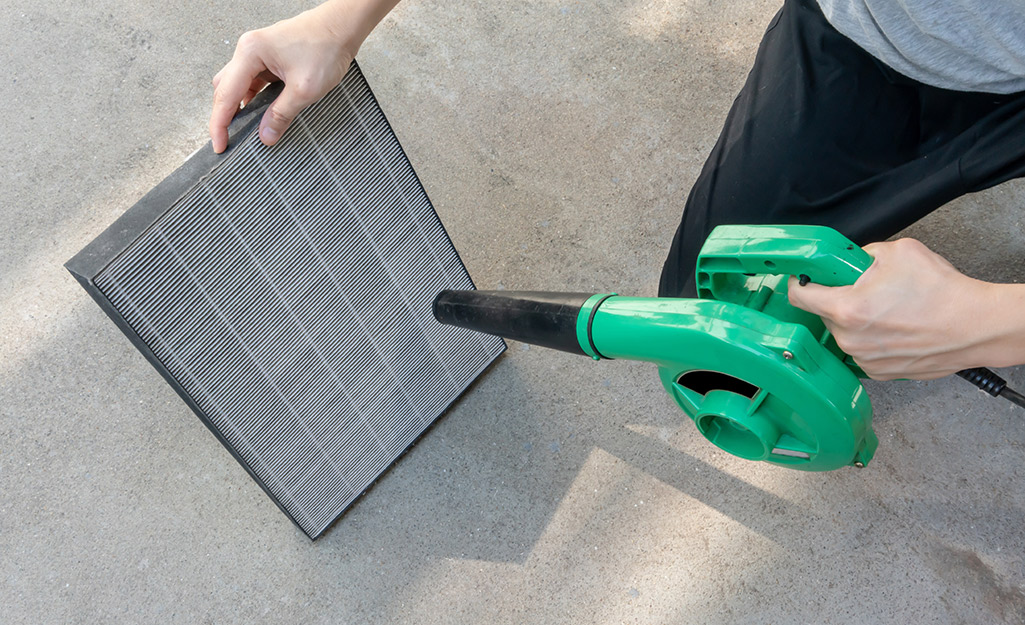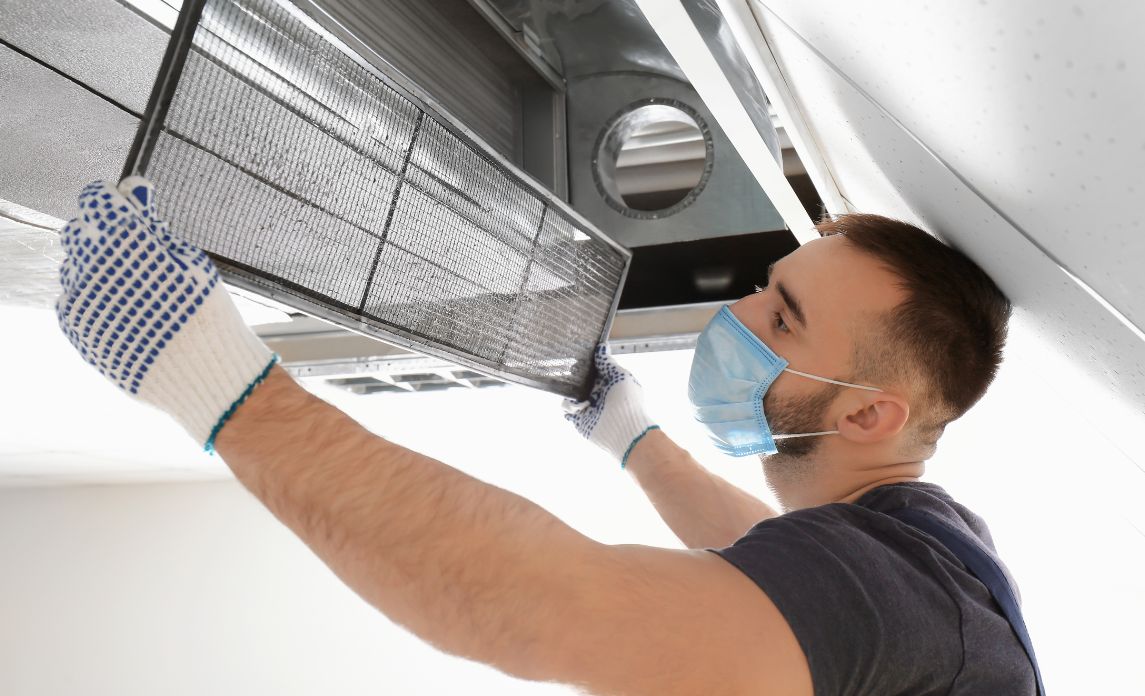Maintaining your HVAC system is crucial for both homeowners and business owners. One of the essential maintenance tasks is to regularly change your HVAC filter. Knowing when to change HVAC filter is vital for ensuring optimal performance and enhancing the longevity of the system. Upgrading your knowledge on this topic can save you money, improve your indoor air quality, and keep your living or working spaces comfortable.

Why Changing Your HVAC Filter is Crucial
Your HVAC filter traps dust, dirt, and other particles, preventing them from circulating in your indoor air. Over time, these contaminants clog the filter, reducing its efficiency. A clogged filter forces your HVAC system to work harder, leading to higher energy bills and potential system failures.
Improving Indoor Air Quality
Changing your HVAC filter regularly ensures that your air remains clean and free of allergens. This is particularly important for individuals with allergies or respiratory conditions. According to a study by the Energy Department, a clean HVAC filter can significantly improve indoor air quality.
Enhancing HVAC System Efficiency
A dirty filter restricts air flow, causing your HVAC system to use more energy to maintain the desired temperature. This not only increases your energy bills but also puts unnecessary strain on the system, reducing its lifespan.
Signs That It’s Time to Change Your HVAC Filter
It’s important to recognize the signs that indicate when to change HVAC filter. These signs include:
Visible Dirt and Dust
If you notice an accumulation of dust and dirt on the filter, it’s a clear indication that it needs to be replaced.
Increased Energy Bills
Higher energy bills without any significant changes in your usage pattern can be a sign of a clogged filter that needs replacement.
Poor Airflow
A noticeable decrease in airflow from your HVAC system is another sign that it’s time to change the filter.
Recommended Frequency for Changing HVAC Filters
The frequency of changing your HVAC filter depends on various factors, including the type of filter, the number of people in your home, and whether you have pets. Typically, it’s recommended to change your filter every 1 to 3 months.
Monthly Check
It’s a good idea to check your filter every month, especially during peak seasons when your HVAC system is working harder.
High Efficiency Filters
If you’re using high-efficiency filters, you might be able to change them less frequently. However, it’s still important to monitor their condition regularly.
Choosing the Right HVAC Filter
Selecting the right HVAC filter for your system is crucial for maintaining optimal performance.
Filter Types
There are several types of HVAC filters, including fiberglass, pleated, and high-efficiency particulate air (HEPA) filters. Each type has its own pros and cons, so it’s important to choose one that suits your specific needs.
Filter Ratings
Filters are rated based on their Minimum Efficiency Reporting Value (MERV). A higher MERV rating indicates better filtration. However, ensure that your HVAC system can handle the resistance of a higher-rated filter.
How to Change Your HVAC Filter
Changing your HVAC filter is a simple task that can be done in a few steps.
Steps to Replace the Filter
- Turn off the HVAC system before you start.
- Locate the filter compartment, usually near the air handler or furnace.
- Remove the old filter and dispose of it properly.
- Install the new filter, making sure it’s facing the right direction as indicated by the arrows on the filter frame.
- Turn the HVAC system back on and check for proper operation.
For detailed instructions, refer to this guide on how to change an HVAC filter.
Common Mistakes to Avoid
While changing your HVAC filter is straightforward, there are some common mistakes to avoid.
Not Changing the Filter Regularly
One of the biggest mistakes is neglecting to change the filter regularly, leading to reduced efficiency and potential damage to the HVAC system.
Installing the Filter Incorrectly
Ensure that the new filter is installed in the correct orientation. Most filters have arrows indicating the direction of airflow.
Additional Tips for Maintaining Your HVAC System
In addition to changing your HVAC filter, there are other maintenance tasks that can help keep your system running smoothly.
Regular Professional Inspections
Schedule regular inspections by a professional HVAC technician to ensure that your system is in good working condition. This can help identify potential issues before they become major problems.
Cleaning the Ducts
Clean your HVAC ducts periodically to remove dust and debris that can accumulate over time. For more details on duct cleaning, check out this informative article.
Maintaining the Outdoor Unit
Keep the outdoor unit free of debris and vegetation to ensure proper airflow and efficient operation.
Benefits of Regular HVAC Filter Changes
Regularly changing your HVAC filter offers numerous benefits, including:
Improved Air Quality
As mentioned earlier, a clean filter ensures that your indoor air remains free of pollutants and allergens, improving overall air quality.
Energy Savings
By maintaining a clean filter, your HVAC system operates more efficiently, leading to lower energy bills. Learn more about the importance of energy savings here.
Extended HVAC System Lifespan
Regular filter changes reduce the strain on your HVAC system, helping to extend its lifespan and reduce the likelihood of costly repairs.
Conclusion
Understanding when to change HVAC filter is essential for maintaining a healthy and efficient HVAC  system. By following the tips and guidelines outlined in this article, you can improve your indoor air quality, save on energy bills, and extend the life of your HVAC system. Remember to check your filter regularly and replace it as needed to keep your system running smoothly.
system. By following the tips and guidelines outlined in this article, you can improve your indoor air quality, save on energy bills, and extend the life of your HVAC system. Remember to check your filter regularly and replace it as needed to keep your system running smoothly.
Frequently Asked Questions (FAQ)
How often should I change my HVAC filter?
It is recommended to change your HVAC filter every 1 to 3 months, depending on usage and environmental factors.
Can I clean and reuse my HVAC filter?
Most standard HVAC filters are not designed to be cleaned and reused. It’s best to replace them with new filters.
What happens if I don’t change my HVAC filter?
Failing to change your HVAC filter can lead to reduced efficiency, higher energy bills, and potential damage to your HVAC system.